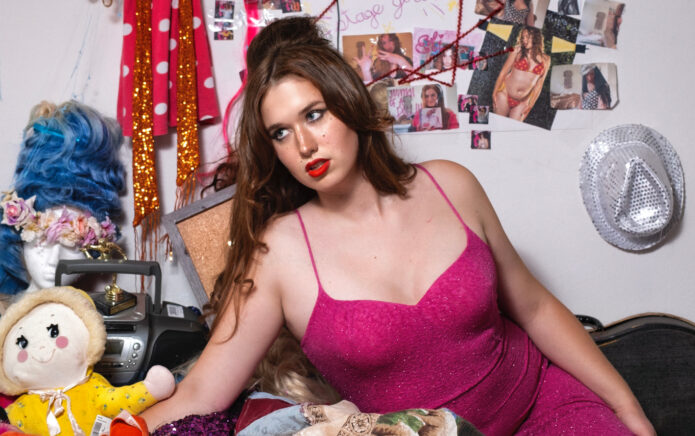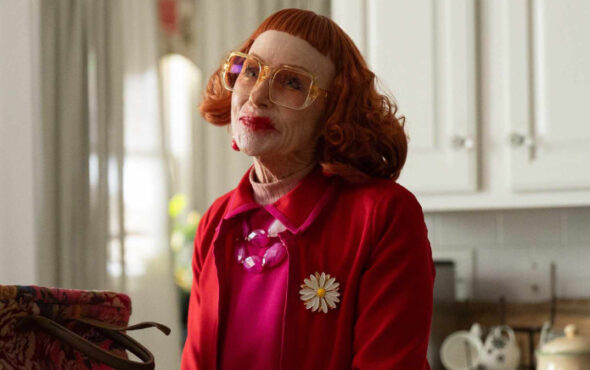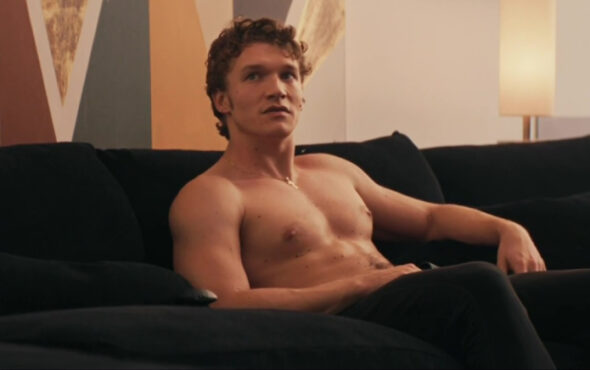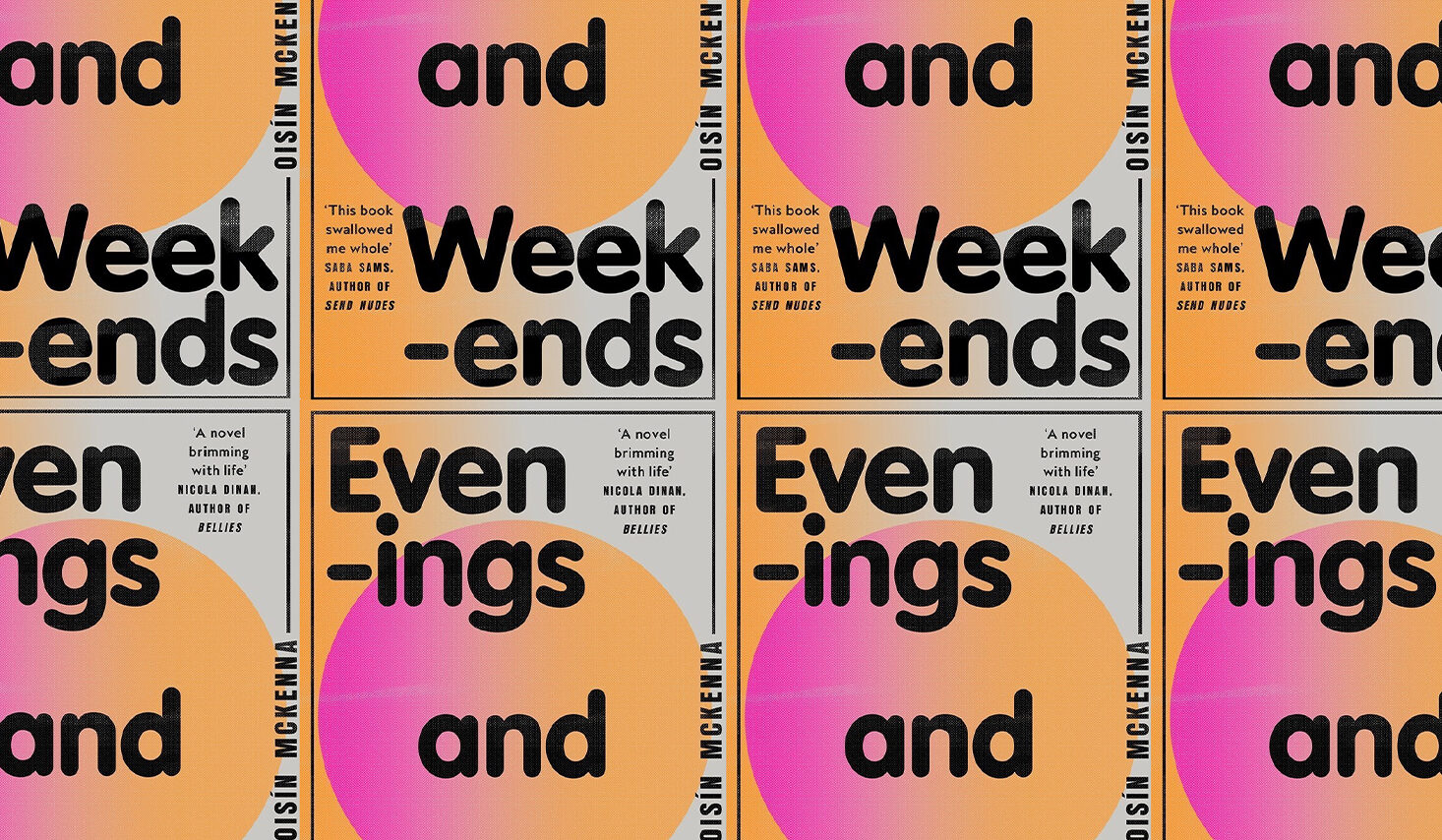
As I type this, it’s unusually warm in London – a setting that feels apt for Oisín McKenna’s glorious debut novel Evenings and Weekends, a strikingly beautiful portrayal of friendship, queerness, and relationships in the city. Within this captivating Sally Rooney-style novel, the Irish author walks us through the complex, tangled-up lives of four main characters: Maggie, Ed, Callum and Phil, who each harbour secrets, feelings and longing for something greater in this bustling, late-capitalist British urban landscape.
And while Evenings and Weekends could easily be described as a love letter to the capital, it’s not always a healthy relationship and, instead, feels variously toxic and one-sided. Drawing out striking vignettes of murky orange horizons bending under the heat of summer, McKenna traps you in an immersive description of the city: from the cloying humidity of the commute, to the animated post-office atmosphere, to the black mould spread across the walls of a rented flat. Undercutting the characters’ personal autonomy is the financial burden of living in a city where the cost of living shoehorns and stifles personal freedom and autonomy – whether in work or love.
GAY TIMES speaks to McKenna about the inspirations behind his characters, what modern-day love means to him and what he learned from writing Evenings and Weekends.
I thoroughly loved Evenings and Weekends and it got me thinking, if you had to make a playlist to represent this book, which songs and artists would you include?
Thank you! I think of it as quite a trance-inflected soundtrack. DJ Sammy’s ‘Boys of Summer’ is the song that best captures the mood of the book, I think. Or ‘Better Off Alone’ [by Alice Deejay] or ‘For An Angel’ [by Paul van Dyk]. Basically big, euphoric, sad dance tracks that used to get played in teenage discos in the 2000s. Also some contemporary pop by the likes of Sophie or Charli XCX, karaoke classics by Cher and ABBA, and plenty of Lana del Rey.
Evenings and Weekends is an incredible debut novel. It’s intricate, complicated and reflective of how messy real life and relationships can be. How did you get under the skin of each character and creatively craft their perspective?
It was different for different characters. Some characters, like Maggie and Phil, are similar to me and my friends in lots of obvious ways, and their perspectives and opinions are similar to mine. Other characters, like Ed or Rosaleen, outwardly have very different lives from mine. With those characters, I started by finding points of commonalities between our perspectives and working from there. Rosaleen, for example, is an Irish migrant, is quite shy and ill at ease in her body, and in those ways, is like me, which was helpful for getting into her mind.
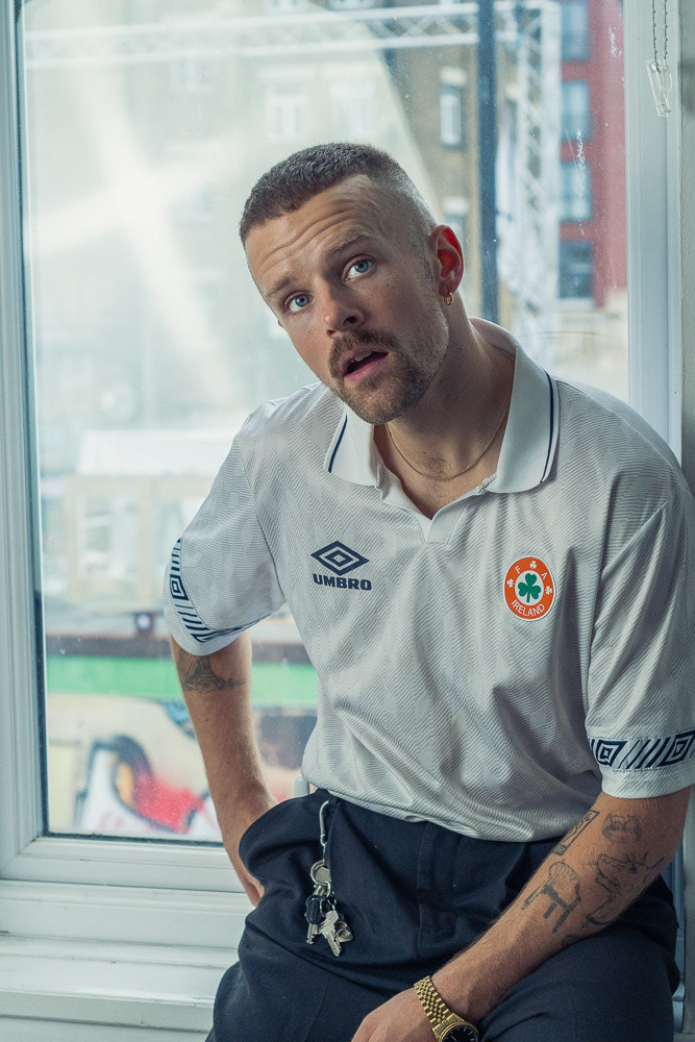
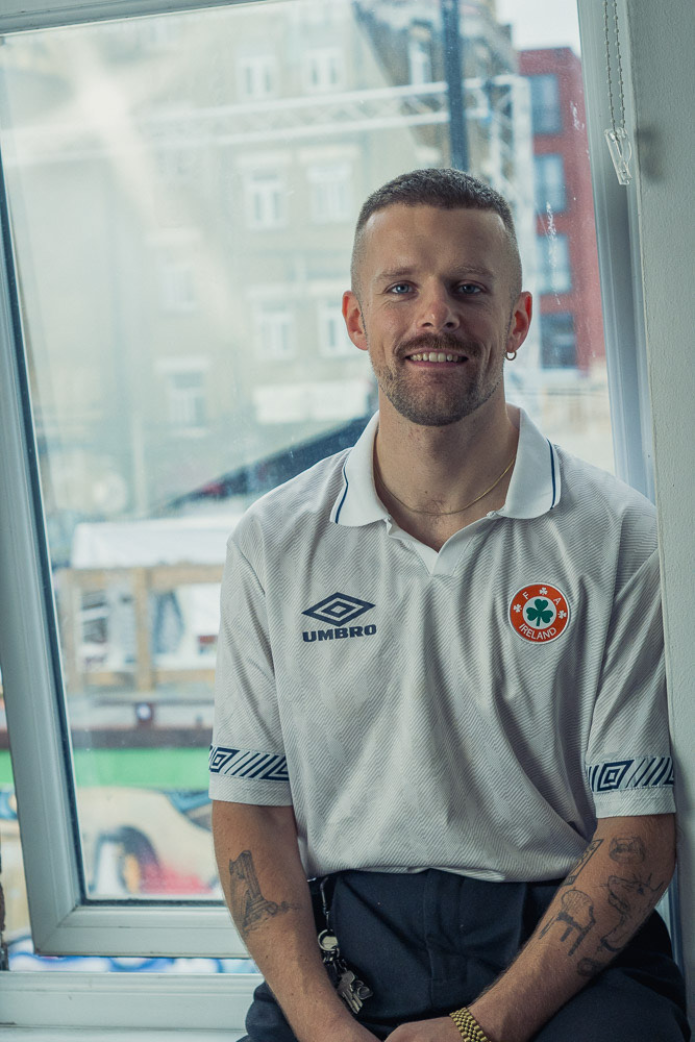
Your book examines the consequences and outcomes of love, lust and romance in London. We hear a lot about relationships that emerge out of nowhere, some on apps, others IRL and by accident. What are your feelings about the state of modern love?
I’m not sure. I’m in a very lovely relationship, and I have friends and family who I love, and I’m lucky that my life is not short of love. It’s not that this isn’t fraught or complicated, but the complications of the love in my life don’t feel strictly related to its modernity.
Dating apps, and social media more generally, have often had a pretty disastrous impact on my happiness and peace of mind, and I try to limit my use of them. Many people obviously have a difficult, tedious, tiring time trying to find love or sex or romance or companionship through apps, but lack the resources or broader social context to meet potential partners in person, which I know can create a painful impasse for those who really desire the sense of security that can come with having a partner, particularly if they feel precarious in many aspects of their life.
There’s a beauty in how you portray the business and eccentricity of urban life in London — it’s buzzing, sweltering in stuffy heat and can go any which way. What did you enjoy most about writing and portraying these vignettes of the city?
These are some of my favourite passages. They’re intended to be propulsive, and led by rhythm, and capturing the way the rhythms of a person’s internal emotional life interact with the rhythms of the city was very pleasing to me.
What are the queer hotspots you gravitate to in London?
I’ve got pretty varied tastes. Sometimes I go to the gay part of Walthamstow Marshes, sometimes I go to Adonis, I like 2CPerrea. I love Central Station, the gay bar near King’s Cross station. It’s quite old school and has really fun karaoke every Friday and Saturday. There are some bars I love which definitely aren’t queer bars but which queers often end up at. Lots of nice queers live around Haringey and South Tottenham and hang out in pubs around there – Mannion’s in Seven Sisters, The Langham Club on Green Lanes, KK McCool’s on West Green Road.
You choose to set Evenings and Weekends in the blistering heat of London. Having grown up in Drogheda, Ireland, did you bring in any inspiration from your home town?
There are things in the book loosely inspired by my upbringing there. Lots of the book is about moving from small places to big places, also about the psychological damage caused by growing up queer in homophobic contexts – certainly, a lot of that stuff was inspired by my upbringing.
A lot of this book is about seeing one another — in our pain, heartbreak and complexities — what advice would you share for those navigating their own layered Evenings and Weekends–style lives?
Probably to be generous, gracious, and open-minded in how you think about others, and how you think about yourself.
There’s a thoughtful moment where Ed ruminates on the best day of his life. What’s yours?
There’s no one day that straightforwardly stands out as the best one because of any big, remarkable event. Most of my happiest days were probably days on which nothing particularly remarkable happened, which may have even passed in a sort of forgettable way.
Lastly, what did writing Evenings and Weekends teach you?
It took a long time to write, and for most of that process, I felt quite certain that it was never going to work. There were glimmers of promise, but it needed so much work and felt completely insurmountable. Every project feels like that at a certain point. The lesson I try to take from writing Evenings and Weekends is to stay calm in those moments of disillusionment and remind myself that I’ve been here before.
Evenings and Weekends by Oisín McKenna is published by 4th Estate and is available now.
